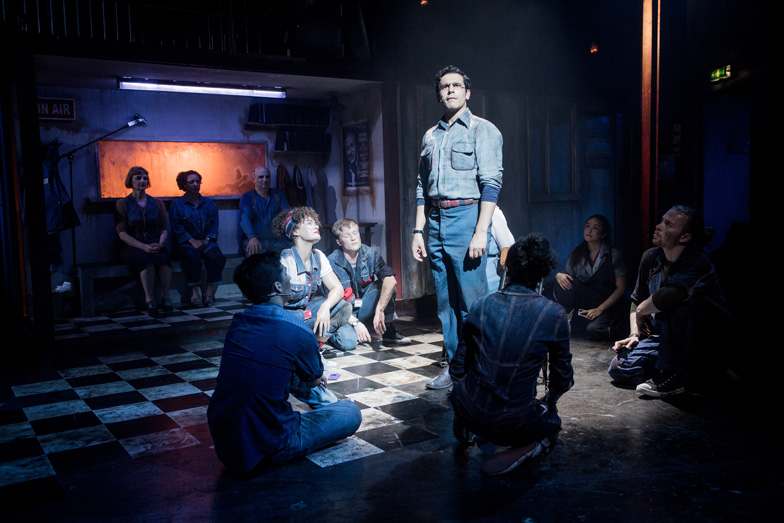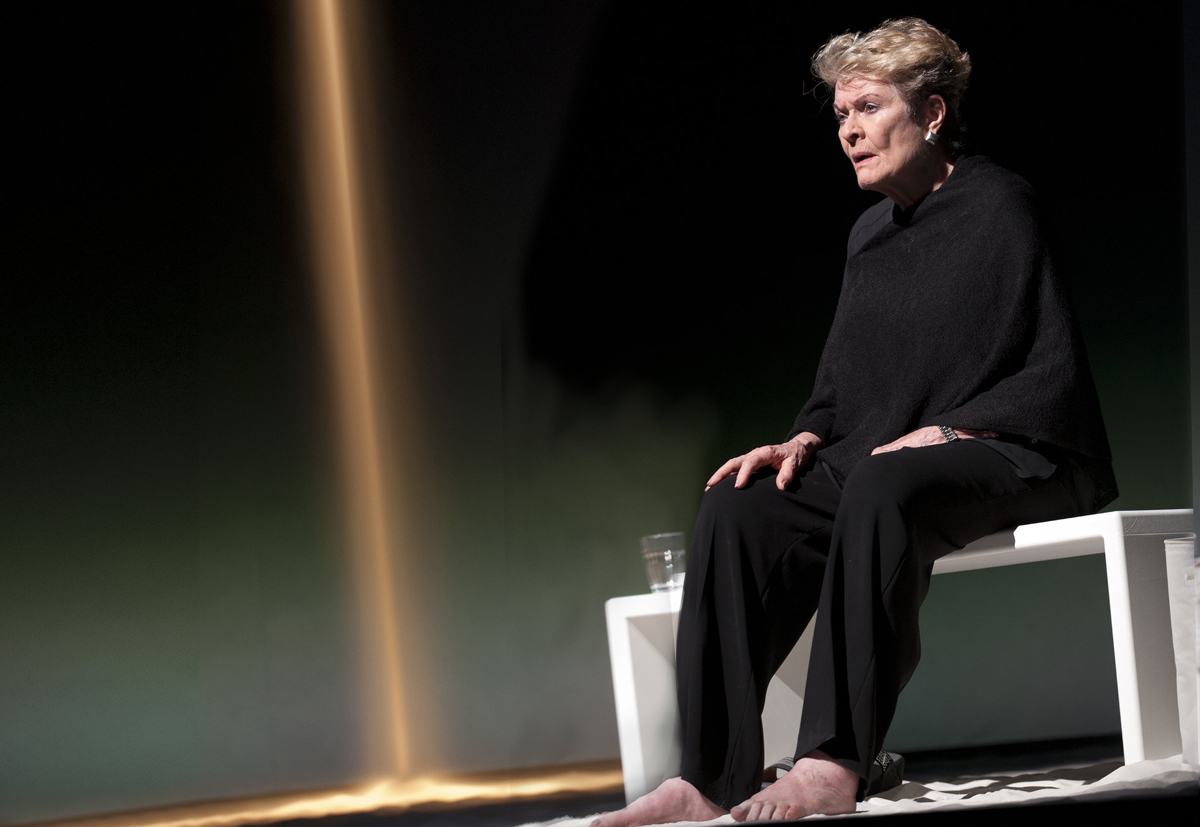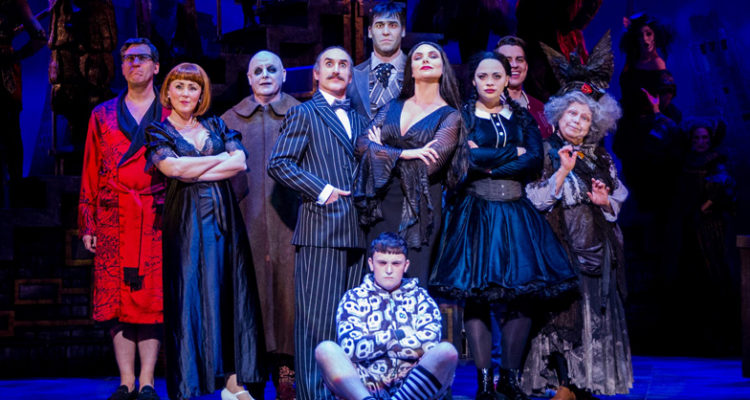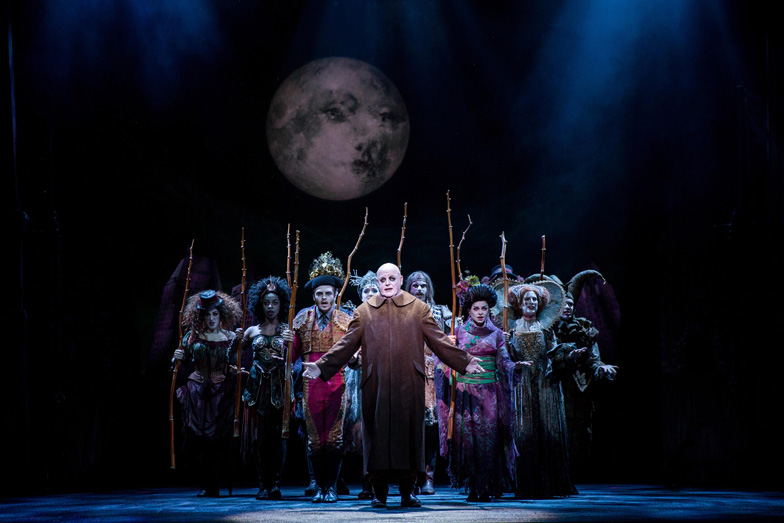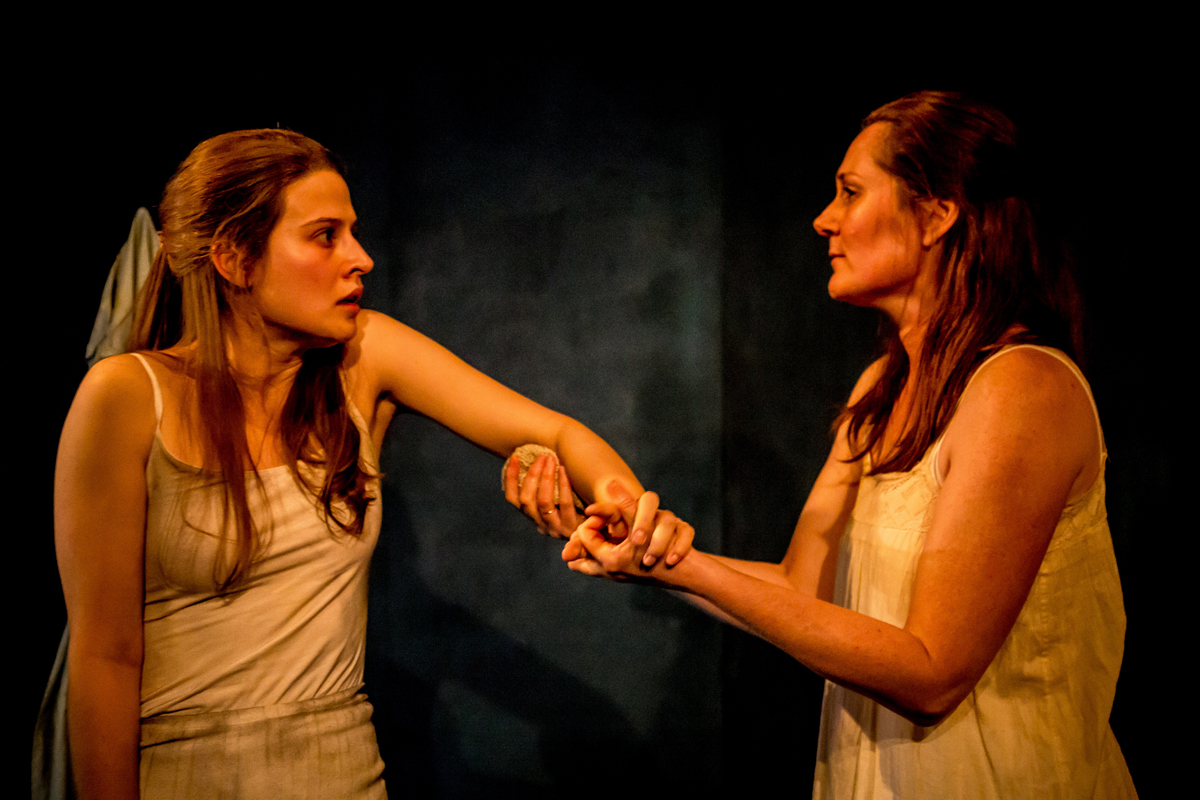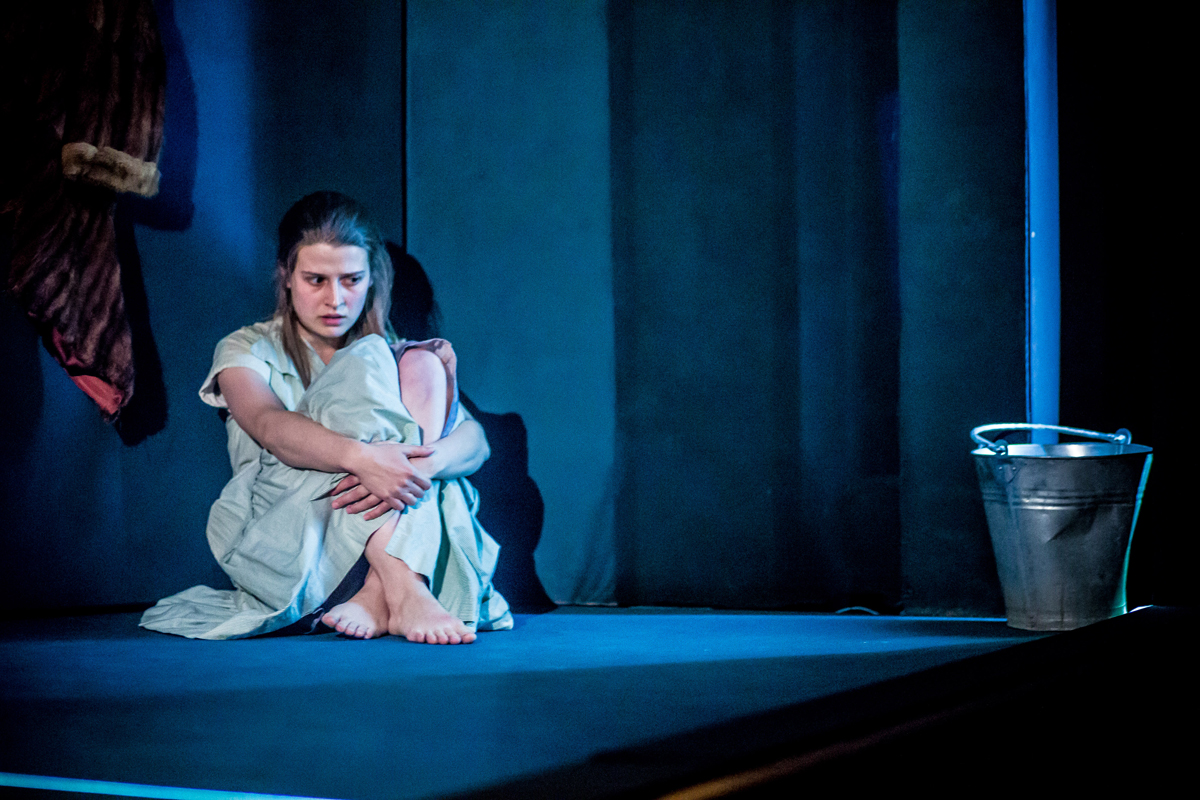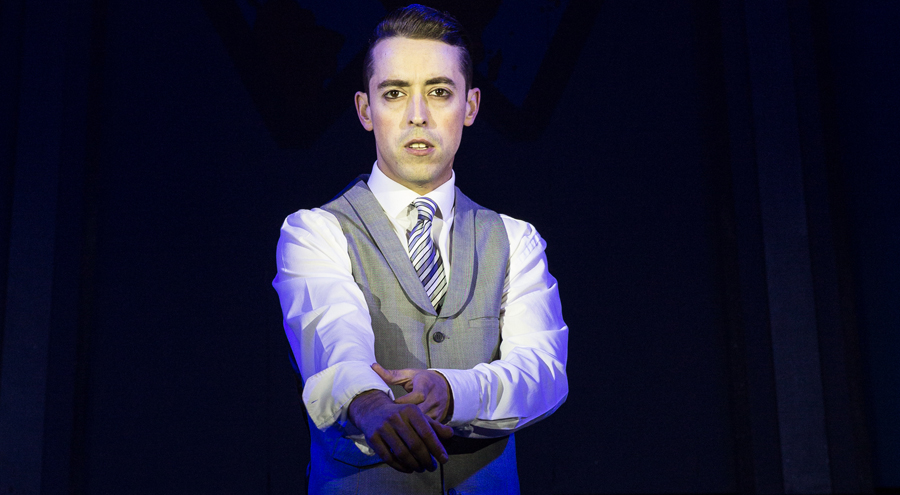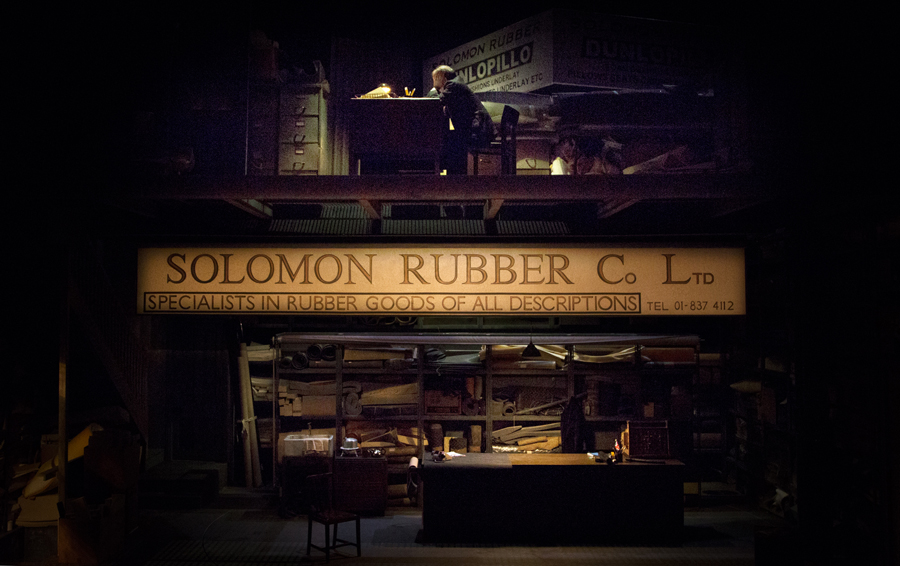 Charlotte Salomon produced an extraordinary series of autobiographical gouaches with texts. She overlaid them on transparent paper or wrote straight onto her paintings to provide dialogue, comments and even suggestions of musical accompaniments. Salomon provides a unique account of Jewish family life in Germany, and later France, spanning the troubled years from before World War I until the height of World War II, when she created work in the South of France, before her deportation to Auschwitz in 1943, aged just 26.
Charlotte Salomon produced an extraordinary series of autobiographical gouaches with texts. She overlaid them on transparent paper or wrote straight onto her paintings to provide dialogue, comments and even suggestions of musical accompaniments. Salomon provides a unique account of Jewish family life in Germany, and later France, spanning the troubled years from before World War I until the height of World War II, when she created work in the South of France, before her deportation to Auschwitz in 1943, aged just 26.
With its provocative title it has long fascinated so many who come across it. Playmakers are especially drawn to the work, which seems to invite staging. Yet with few exceptions, success has proved elusive. Now this new play with music gives Salomon a wonderfully authentic and persuasive voice onstage – a vivid life in the theatre.
I wrote in Jewish Renaissance’s April 2017 issue of the ‘tri-coloured’ collaboration of three original creatives. Czech composer Aleš Březina, who has written a glorious new score – witty, haunting and moving by turns, subtly echoing styles of the period in places, to complement the found music Salomon indicates. He writes for just four versatile musicians (who also have cameos and help with scene-shifting alongside the actors/singers) playing a striking and unusual mix of piano, clarinets, cello and trumpet. This is not an opera, but indeed a play with music, for playwright/performer Alon Nashman has written a script that works wonderfully to tell the story and make her characters spring to life in a voice true to Salomon’s, turning on a sixpence from passionate to ironic. He’s a nimble lyricist too, marrying clever apposite words with Březina’s music. Nashman is not afraid to pare down Salomon’s bustling expansive narrative to a lean and pacy account that works just fine to take the audience through her story.
The third ‘colour’ is designer/director Pamela Howard, who does indeed work in a palette trilogy. Red, blue and yellow mix artfully, just as a young Salomon did in wartime France, when the play’s conjecture is that she had access only to these three colours. Howard’s triumph is to realise Salomon’s images in vivid 3D – the ornate baroque furniture of her family‘s Berlin apartment, a series of doors, her bed and a wondrous red ladder. On this Nashman performs acrobatically to match the verbal pyrotechnics of his character Amadeus Daberlohn, the voice teacher as visionary as he is needy and Salomon’s inspiration and lover – though she pricks the pomposity of this self-styled ‘Prophet of Song’ with her knowing humour. Behind are swishing translucent curtains, echoing Salomon’s scrims and her conjuring of the ghosts of her past, as performers are glimpsed through them in eerie silhouette.
Designer/directors are rare and Howard’s magic is a potent reason for the play’s effectiveness. She has a marvellous knack for making every configuration, every shift of the action and the furniture into dynamic tableaux vivants entirely true to Salomon’s vision.
I’m confident that Salomon would have joyfully recognised herself in Adanya Dunn’s candid, open, funny Charlotte (her youthful soprano deliciously clear); would have ardently embraced Nashman’s sexy, solipsistic Daberlohn; embraced with wonder Ariana Chris’s warm expansive golden-voiced diva Paulinka (her beloved opera-singer stepmother) and Derek Kwan’s upright clever Dr Kann, her father. She would have clung compassionately to Xin Wang’s mournful suicidal duo of her mother Franziska and her Grandmother. But she would have held at arm’s length Thom Allison’s unsympathetic, transgressive Grandfather (a tour de force that also includes other unsavoury characters, including Himmler), even as she enfolded with 'sisterly' feeling Kelly McCormack's ‘beautiful Barbara’, the ideal Aryan artist’s model and her fellow art student. McCormack is also excellent in other telling cameos, including the sullen housemaid in Villefranche who grudgingly thrusts the parcel containing their late daughter’s artwork into her grieving parents’ arms to tell her story to the world.
The Theaturtle Company have indeed heeded the plea written on the parcel, “Take care of this. This is my whole life”, breathing into it real, multi-dimensional life. Salomon’s shade surely joined in the standing ovation for this glorious incarnation of her tri-coloured play with music.
By Judi Herman (who saw the production at Toronto's Luminato Festival)
Photos by Adnaya Dunn and Cylla von Tiedemann, respectively
Charlotte - A Tri-Coloured Play with Music runs Friday 30 June - Sunday 2 July. World Stage Design Festival, Taipei, Taiwan. Visit www.theaturtle.com to view future performances.
Charlotte Salomon's artwork, Life? Or Theatre?, will be exhibited for the first time in full from Wednesday 25 October 2017 - Sunday 25 March 2018. Jewish Historical Museum, Amsterdam. www.jck.nl




